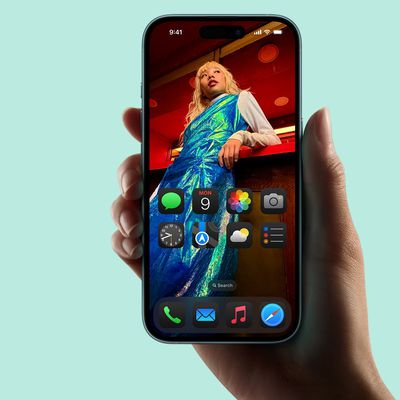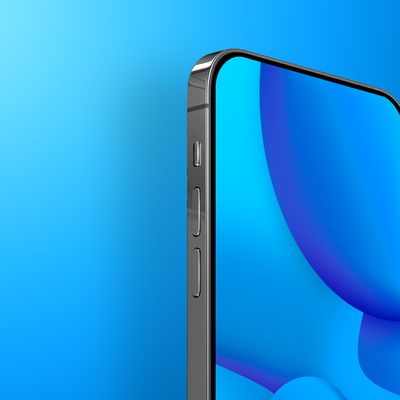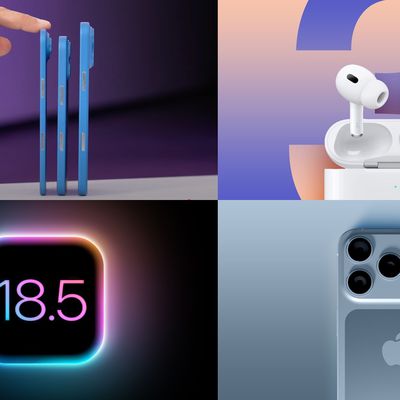'Skyfire for iPad' Coming Soon With Social Network Integration [Now Available]
One of the more high-profile App Store releases over the last several months has been Skyfire Web Browser, an alternative web browser that allows users to view Flash video on the iPhone by converting content to HTML5 on the company's own servers and sending it back to the user's device. Despite some mixed reviews regarding app performance, Skyfire Web Browser raked in nearly $1 million in its opening weekend and was so popular that the company had to quickly pull the app and bring it back for purchase in only small batches as the company upgraded its servers to handle the demand.
We've known for awhile that Skyfire has been working on an iPad version of its browser, and it now appears that the new version will be available shortly, as the application has been submitted to Apple for review.
Engadget has been able to get
hands-on experience with
Skyfire for iPad, which features smooth performance and social network integration with links to Facebook, Twitter, and Google Reader "quick links" right in a toolbar at the bottom of the screen.
For example, when the Facebook button is pushed, you're presented with a trimmed down version of the social network. The same goes with Twitter and Google Reader. The app also features Fireplace, which allows you to view specifically the links your Facebook friends have shared, and 'Popular', which shows all the related links your friends have shared based on what website the browser parked on, and of course a dedicated 'Like' button. The Share function lends you an easy way to share links via various popular networks.
Aside from the new social features, Engadget notes that performance is much improved over the iPhone version, with smooth scrolling and pinch-to-zoom along with relatively fast page loading making for a solid user experience.
Update: Skyfire Web Browser for iPad is now available, priced at $4.99.
Popular Stories
This week marks the 10th anniversary of the Apple Watch, which launched on April 24, 2015. Yesterday, we recapped features rumored for the Apple Watch Series 11, but since 2015, the Apple Watch has also branched out into the Apple Watch Ultra and the Apple Watch SE, so we thought we'd take a look at what's next for those product lines, too.
2025 Apple Watch Ultra 3
Apple didn't update the...
While the so-called "iPhone 17 Air" is not expected to launch until September, there are already plenty of rumors about the ultra-thin device.
Overall, the iPhone 17 Air sounds like a mixed bag. While the device is expected to have an impressively thin and light design, rumors indicate it will have some compromises compared to iPhone 17 Pro models, including only a single rear camera, a...
While the iPhone 17 Pro and iPhone 17 Pro Max are not expected to launch until September, there are already plenty of rumors about the devices.
Below, we recap key changes rumored for the iPhone 17 Pro models as of April 2025:
Aluminum frame: iPhone 17 Pro models are rumored to have an aluminum frame, whereas the iPhone 15 Pro and iPhone 16 Pro models have a titanium frame, and the iPhone ...
Apple has completed Engineering Validation Testing (EVT) for at least one iPhone 17 model, according to a paywalled preview of an upcoming DigiTimes report.
iPhone 17 Air mockup based on rumored design
The EVT stage involves Apple testing iPhone 17 prototypes to ensure the hardware works as expected. There are still DVT (Design Validation Test) and PVT (Production Validation Test) stages to...
Apple may have canceled the super scratch resistant anti-reflective display coating that it planned to use for the iPhone 17 Pro models, according to a source with reliable information that spoke to MacRumors.
Last spring, Weibo leaker Instant Digital suggested Apple was working on a new anti-reflective display layer that was more scratch resistant than the Ceramic Shield. We haven't heard...
Apple will likely manufacture its 20th anniversary iPhone models in China, despite broader efforts to shift production to India, according to Bloomberg's Mark Gurman.
In 2027, Apple is planning a "major shake-up" for the iPhone lineup to mark two decades since the original model launched. Gurman's previous reporting indicates the company will introduce a foldable iPhone alongside a "bold"...
We've known for quite some time about Apple's plans for a thinner "iPhone 17 Air" coming later this year, but wow, the latest dummy models give us our best look yet at just how thin this phone is going to be.
Other Apple news and rumors this week included another iOS 18.5 beta, the 10th anniversary of the Apple Watch launch, and more management reshuffling in Apple's Siri division, so read...




















